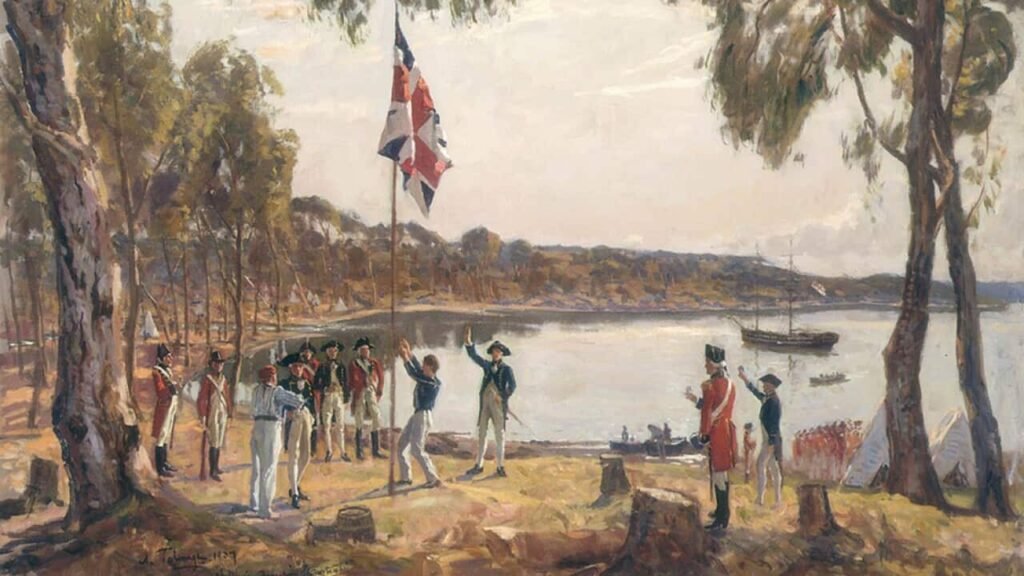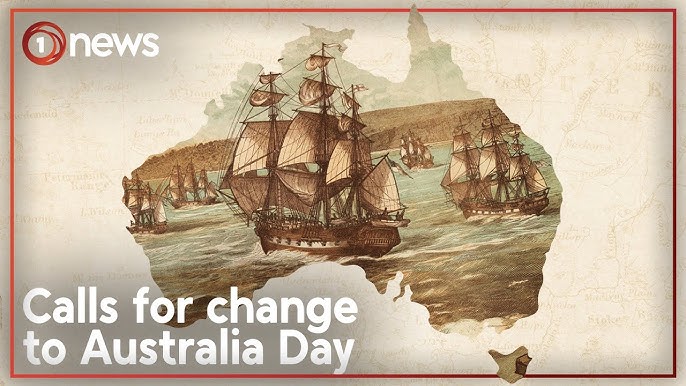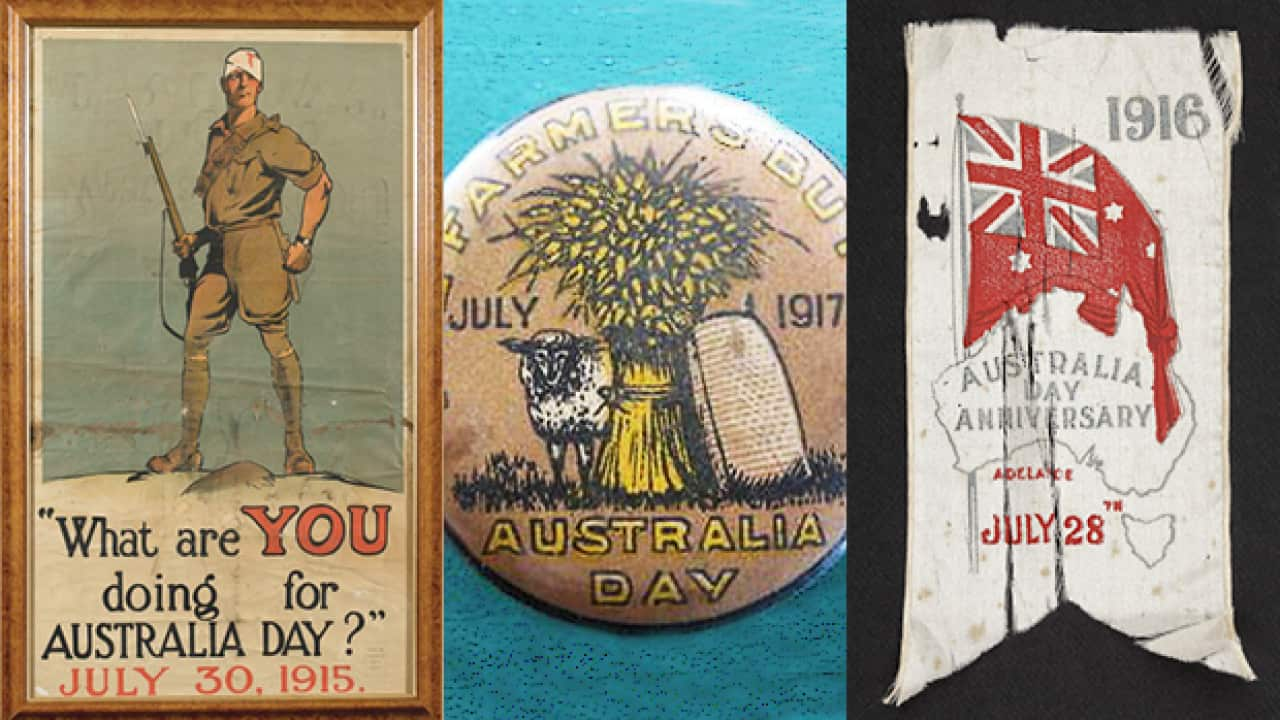
Australia Day History: Australia Day marks the arrival of the First Fleet at Port Jackson, New South Wales, on January 26, 1788. It celebrates the beginning of European settlement in Australia.
Australia Day is a significant national holiday that brings together Australians from diverse backgrounds. Celebrated on January 26 each year, it commemorates the historic landing of the First Fleet in 1788. The day is marked with various events such as barbecues, fireworks, and citizenship ceremonies.
Australians reflect on their national identity, culture, and achievements. The day also sparks discussions about the impact of colonization on Indigenous communities. Balancing celebration with respect for history, Australia Day serves as a moment for unity and reflection. It highlights both the nation’s achievements and the importance of reconciliation.

Credit: sjmc.gov.au
Origins Of Australia Day
Australia Day celebrates the arrival of the First Fleet. The First Fleet arrived at Port Jackson in 1788. The fleet was led by Captain Arthur Phillip. This event marked the beginning of British colonization. Many people see this day as the birth of modern Australia.
Early celebrations were modest and local. People used to have small gatherings and events. By the 1800s, the day became more widely celebrated. Public holidays were declared in some regions. Communities started to hold larger events and parades.
The celebrations have grown over time. Today, Australia Day is a national holiday. People enjoy barbecues, fireworks, and ceremonies. It’s a day of pride and reflection for many Australians.
Evolution Over Time
Australia Day began in 1808. Early celebrations were about the British colony. By the mid-1800s, people started celebrating with sports and parades. The gold rush in the 1850s brought more people and traditions. By 1888, all states celebrated the 100th anniversary. This century saw the start of national pride.
In 1935, all states agreed on January 26 as Australia Day. The 150th anniversary in 1938 was a big event. People held parades, re-enactments, and parties. By 1946, the day was an official public holiday. The 1988 bicentenary saw huge celebrations with a tall ships race and a grand parade. This century also saw the rise of Indigenous protests. Many called it Invasion Day to remember the impact on Indigenous Australians.
Controversies And Debates
For many Indigenous people, Australia Day is not a celebration. It marks the start of colonial oppression. This day is often called Invasion Day by Indigenous Australians. They remember the loss of their lands and cultures. Many feel pain and grief on this day.
Protests take place every year on Australia Day. People march to show their support for Indigenous rights. They call for changing the date of Australia Day. Many believe this would help heal wounds. Protesters hold signs and chant slogans.
Traditional Celebrations
Families and friends gather for barbecues and picnics. These events are usually outdoors. People cook sausages, burgers, and steaks. Many enjoy salads and cold drinks. Parks and beaches are popular spots. Everyone loves the relaxed atmosphere.
Fireworks light up the sky on Australia Day. Cities and towns organize spectacular shows. Crowds gather to watch the colorful displays. The fireworks often sync with music. These shows create a festive mood. They are a highlight for many people.
Cultural Significance
Australia Day helps Australians feel proud. It celebrates the nation’s diversity and achievements. Many people reflect on their shared history. They honor the journey from past to present. This day represents unity and belonging.
Communities come together on Australia Day. Families and friends gather for barbecues and picnics. Many join in local events and festivals. These activities strengthen bonds among people. Celebrating together creates a sense of community spirit. Everyone feels included and connected.
Australia Day Awards
The Australia Day Awards honor the achievements of Australians. These awards celebrate outstanding contributions to society. They recognize everyday heroes and their dedication.
Many people receive awards for community service. Others are honored for excellence in arts or sports. The awards also highlight innovations and scientific achievements. The goal is to inspire and encourage more contributions to the nation.
The selection process is rigorous. A committee reviews all nominations. They evaluate each nominee’s impact and contributions. The committee ensures fairness and transparency.
Each nominee must show a record of achievements. They should have positive influence on their community. The committee also considers public opinion and feedback.
Impact On Indigenous Communities
Australia Day history profoundly affects Indigenous communities, marking the beginning of colonization and loss of culture and land. Many Indigenous Australians view the day as one of mourning and reflection.
Historical Trauma
Australia Day marks the arrival of the First Fleet in 1788. For Indigenous communities, this day is painful. It reminds them of colonization and loss of land. Many families were displaced. Many traditions were disrupted. The day brings memories of violence and injustice. Generations have suffered from these events. The trauma is felt deeply, even today.
Calls For Change
Many people believe Australia Day should be changed. They want a date that includes everyone. There are protests every year on January 26. Indigenous groups and their allies join these protests. They call it “Invasion Day” or “Survival Day”. They seek recognition and respect. This push for change grows stronger each year. People want a day that unites all Australians.

Credit: www.youtube.com
Future Of Australia Day
Australia Day’s history reflects a complex blend of celebration and controversy. Indigenous perspectives and colonial legacy shape its evolving narrative.
Potential Reforms
Many people think Australia Day needs change. Some suggest moving the date. This could help heal old wounds. Others want to keep the date but add new events. These events could honor Aboriginal cultures.
Leaders debate new policies. They want to respect all Australians. Schools could teach more about history. This includes both good and bad moments. Education can bring people together.
Public Opinion
Public opinion is split on Australia Day. Some people love the current date. They see it as a time for celebration. Others feel it marks a sad event. They think it should be a day of mourning.
Surveys show mixed feelings. Younger people often support change. Older generations might prefer tradition. Listening to everyone is important. This can help find a fair solution for the future.

Credit: www.sbs.com.au
Frequently Asked Questions
What Is Australia Day?
Australia Day is celebrated on January 26th. It marks the arrival of the First Fleet in 1788. The day commemorates the founding of modern Australia.
Why Do Australians Celebrate Australia Day?
Australians celebrate Australia Day to honor the nation’s history. It marks the beginning of European settlement. It’s a day for unity and reflection.
When Did Australia Day Become A Public Holiday?
Australia Day became a public holiday in 1935. Before that, it was known as Foundation Day. The date was standardized in 1994.
How Do People Celebrate Australia Day?
People celebrate with barbecues, parades, and fireworks. Many enjoy picnics and concerts. It’s a day for community events and gatherings.
Australia Day is a day to honor the nation’s history and culture. It offers a chance to reflect and celebrate. From its beginnings to modern-day festivities, it unites Australians. Embrace the spirit of unity and pride that this day fosters.
Celebrate Australia Day with respect and joy.
